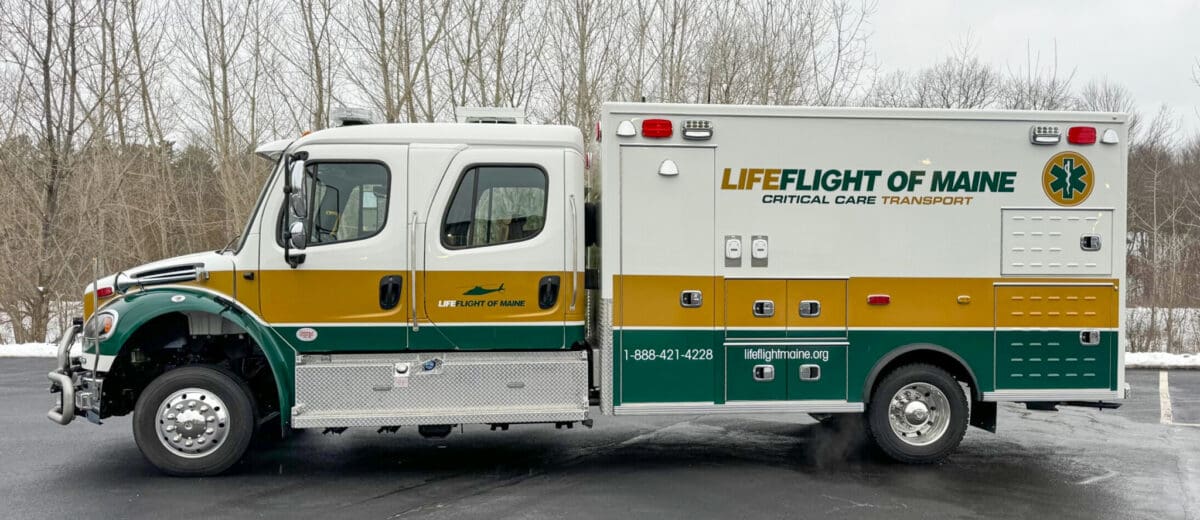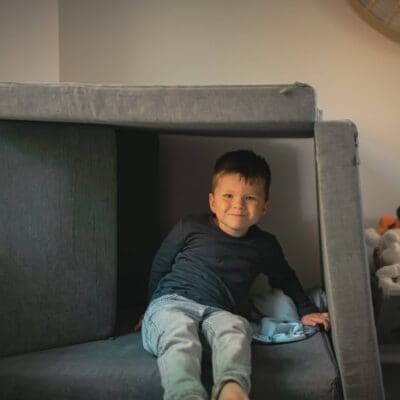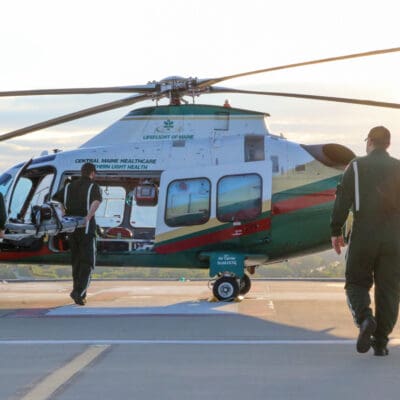Ground Transport
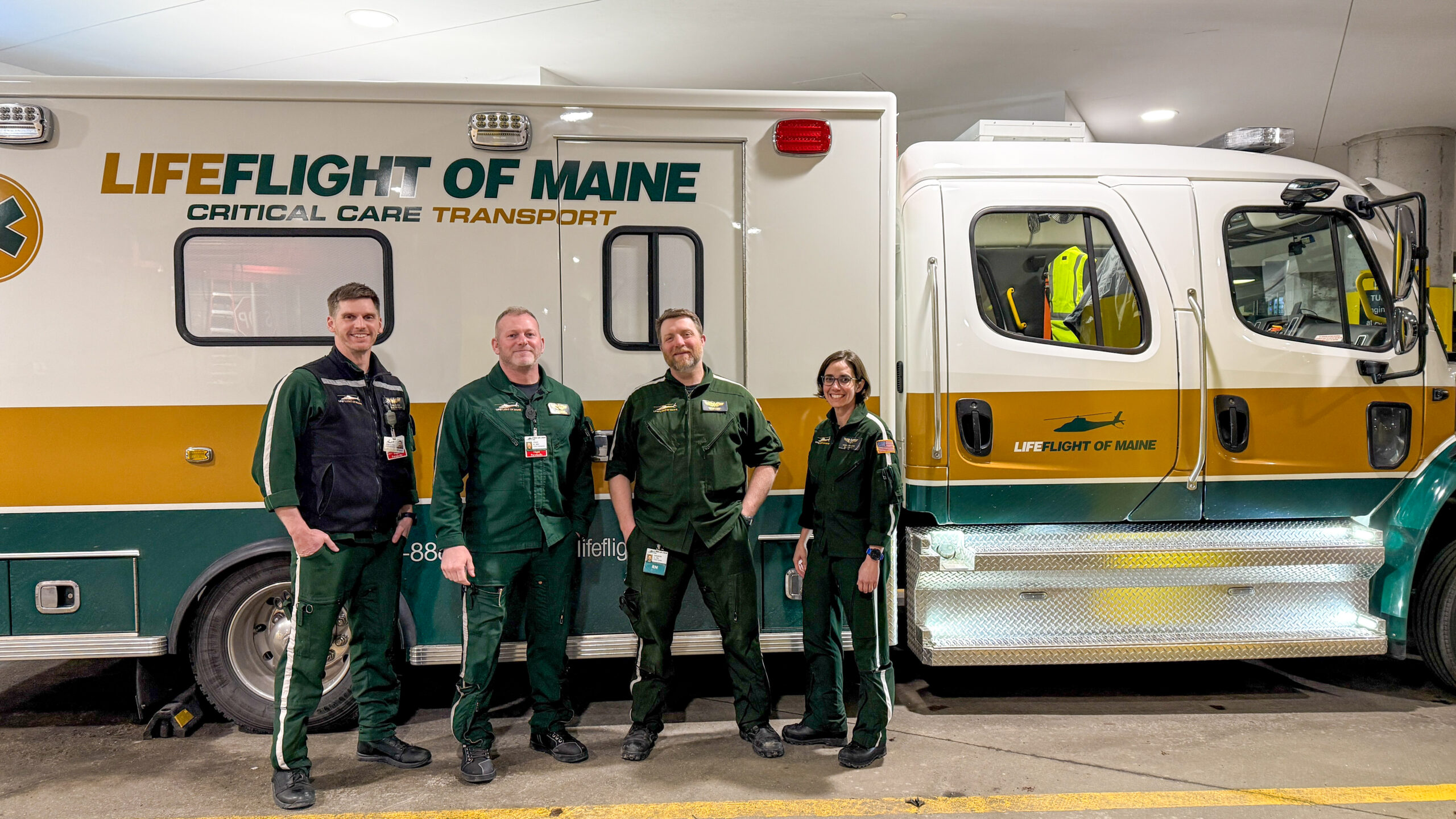
LifeFlight utilizes three modes of transport: helicopter, airplane, and ground ambulance. In each, the standard of care is the same. Each mode has its own advantages and limitations based on the situation and providing safe, reliable care is the core of LifeFlight’s mission.
When LifeFlight aircraft cannot fly because of weather or maintenance needs, our crews must get to the patient by ground.
Additionally, not all LifeFlight patients need the speed of an aircraft. Many patients in Maine can be transported only by LifeFlight because they need to maintain the same ICU-level of care during transport, but their condition is less affected by out-of-hospital time. For these patients, moving by LifeFlight ambulance may be the best option. It provides safe and reliable transport from one medical facility to another, while keeping the LifeFlight aircraft in service for other patients in Maine for whom out-of-hospital time is critical.
Approximately 26% of LifeFlight missions are completed in a ground ambulance.
Thanks to generous federal support and donations from LifeFlight community members, our program officially launched in October 2023. Today, it continues to grow, serving an increasing number of patients and making a significant impact in the lives of families across Maine.
Despite supply chain challenges, the first of our three new ambulances, specially designed for critical care transport, transported its first patient on March 17, 2025. Within a week, it had completed 16 patient transports and logged 2,786 miles.
“This new truck is already making an impact in our ability to provide care,” says Eric Mailman, who is a flight paramedic, assistant clinical base manager, and manager for LifeFlight’s Critical Care Ground Transport Program. “The ground program is helping us reach more patients and get them to the care they need, especially in adverse conditions. This new truck is physically much bigger. It’s a more comfortable ride for both patients and crew, which makes a big difference when you’re driving from Caribou to Boston on a winter night. And it is purposefully designed for the high level of care we provide at LifeFlight.”
The acquisition of ground ambulances and the implementation of a formal ground program are directly impacting LifeFlight’s reliability and financial stability, ensuring that Maine’s critically ill and injured patients continue to get the care they need. LifeFlight’s highly skilled nurses and paramedics are able to reach patients across Maine when needed by helicopter, airplane, and now in our own ground vehicles. LifeFlight’s fleet can reach more than 90% of Maine communities within 45 minutes.
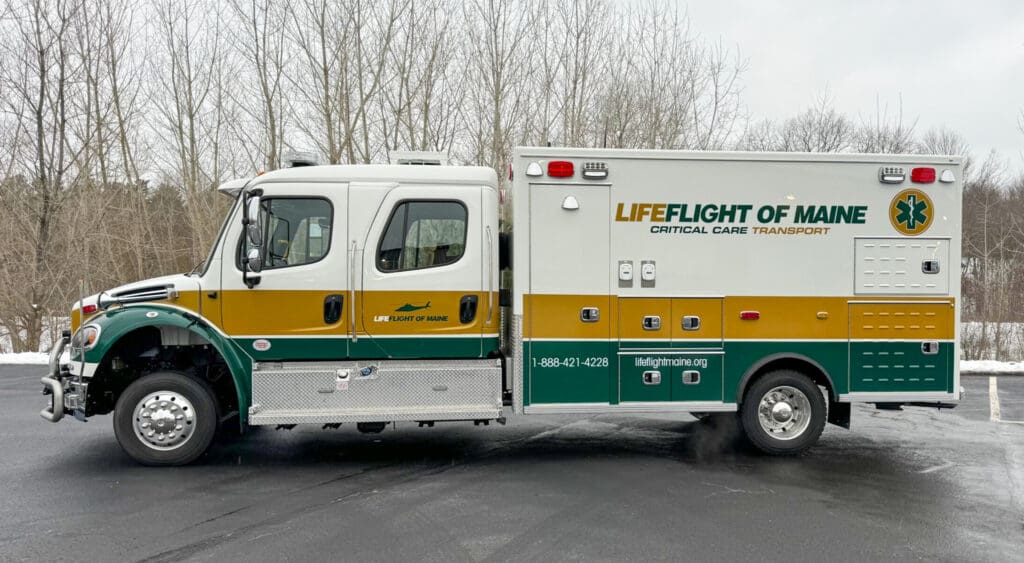
A LifeFlight of Maine ground ambulance, specially designed for critical care transport.
LifeFlight provides the same ICU-level critical care for patients in its ground ambulances as it does in its aircraft. LifeFlight crews typically transport patients by ground when:
- Weather precludes safe flight operation
- Additional transport resources are needed
- The aircraft are busy with other patients
- The safest clinical option is to move the patient by ground
LifeFlight transports around 600 patients per year by ground, including transports completed in partnership with the Rosen Neonatal Care Unit Teams at Northern Light Eastern Maine Medical Center.
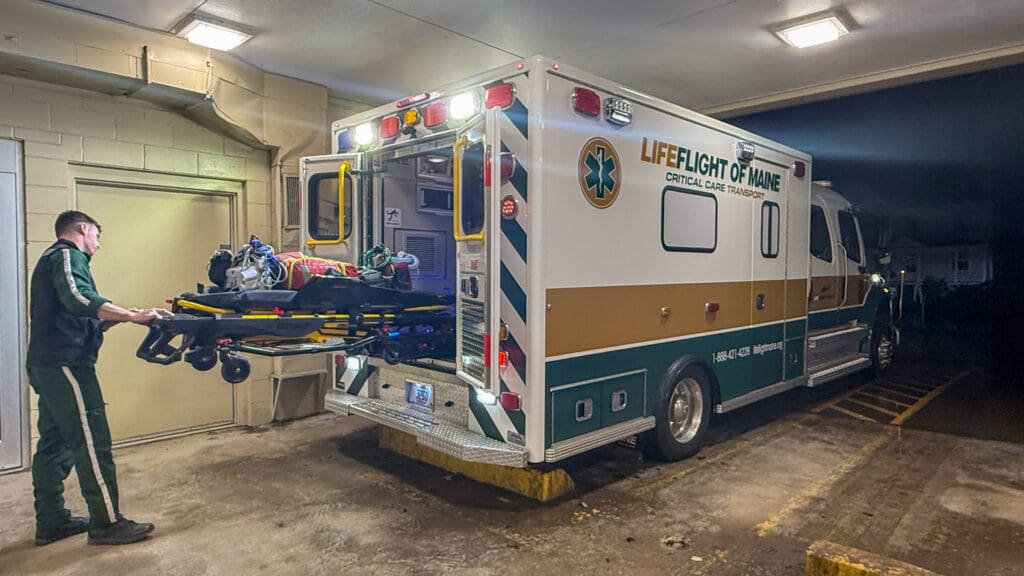
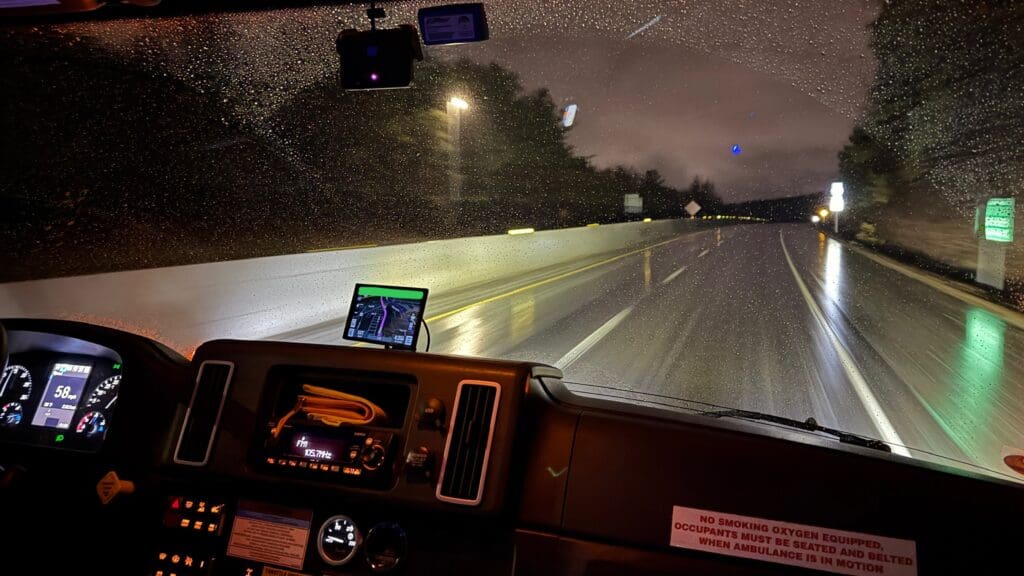
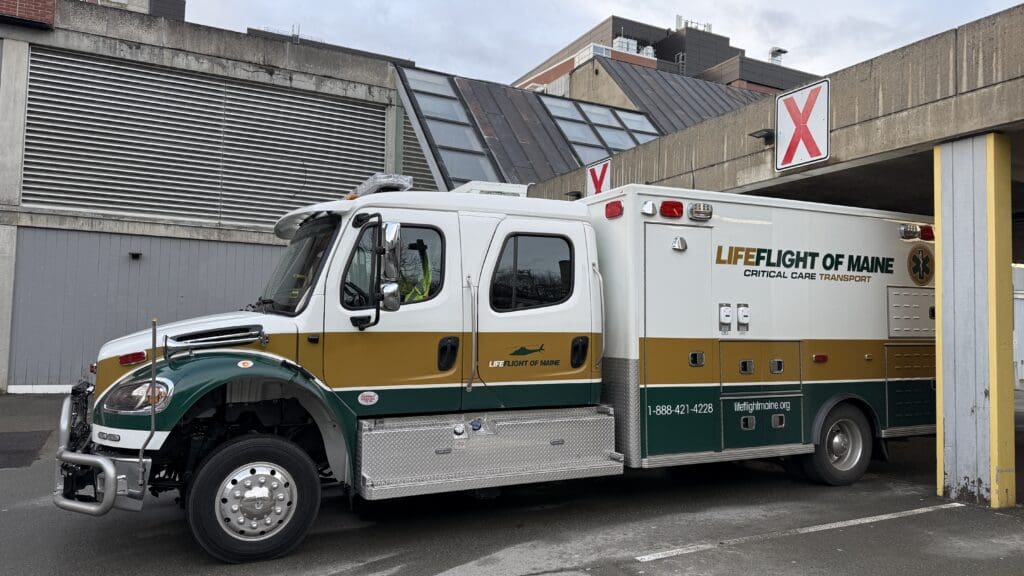
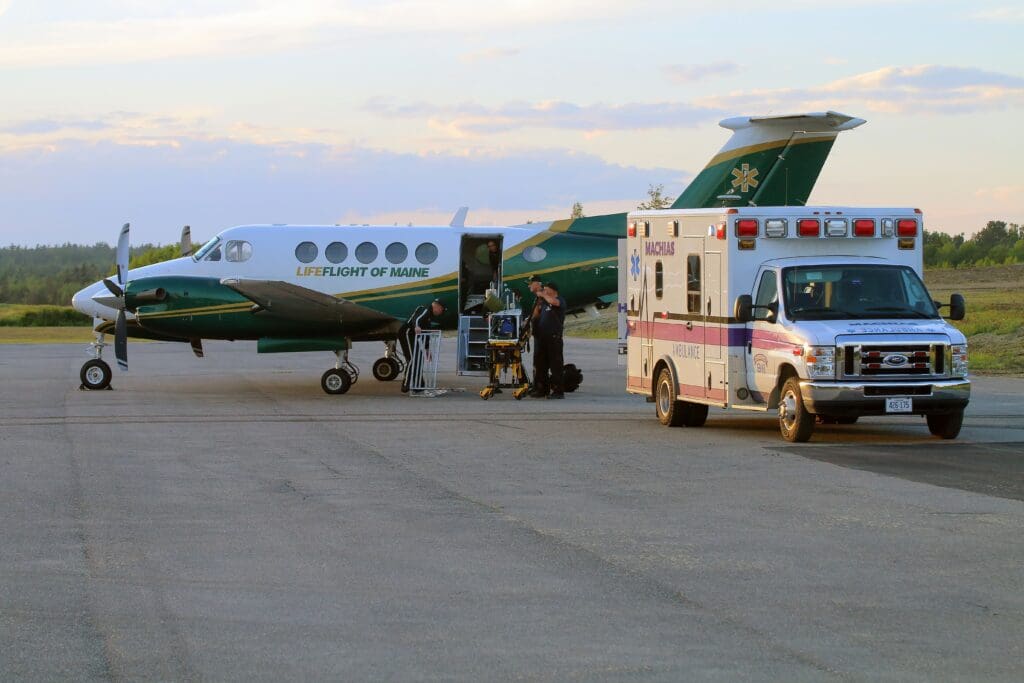
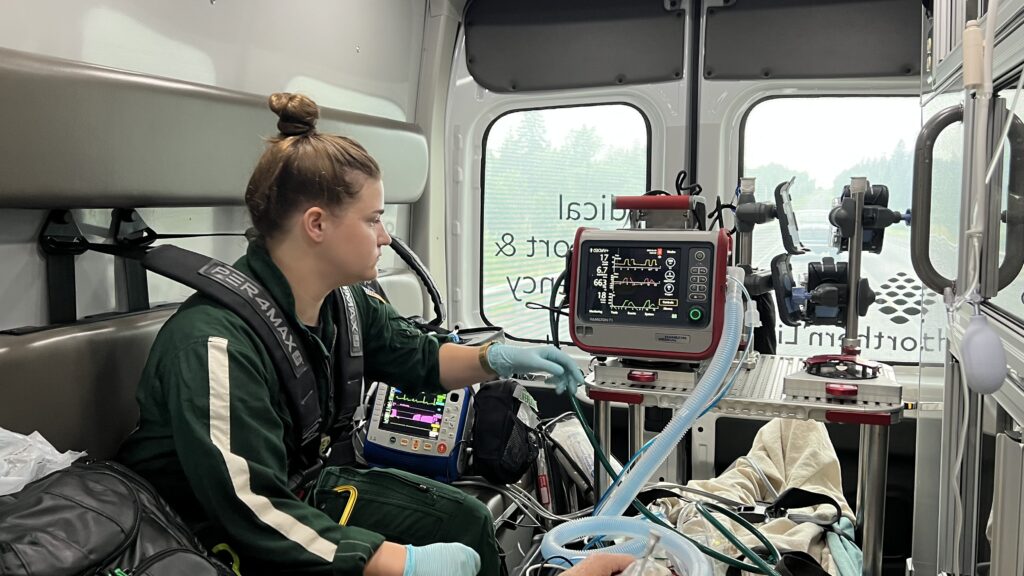

The LifeFlight teams work seamlessly across all vehicle types.
Each LifeFlight vehicle is configured to support critical patients including:
- Advanced ventilators
- Invasive cardiac and neuro-monitoring
- Multiple infusion pumps
- Laboratory
- Ultrasound
- An ICU pharmacy
- Blood and plasma product
- Advanced resuscitation and trauma care
The vehicles can be reconfigured with specialized newborn transport isolettes, intra-aortic and ventricular assist devices, tandem hearts, and ECMO (extracorporeal membrane oxygenation) for patients needing cardiopulmonary bypass.
Stay Connected.
Sign up for news, updates, event info, and opportunities to get involved! We send periodic email updates, but we promise not to fill your inbox.
